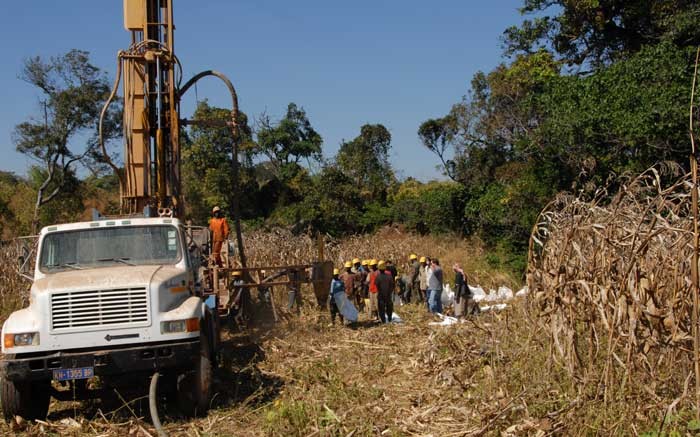For the last four years, El Nino Ventures (TSXV: ELN; US-OTC: ELNOF) has fought an increasingly bitter battle to keep its grip on Infinity Resources, a joint venture that owns the Kasala copper project in the Democratic Republic of the Congo.
The Vancouver-based company owns a 70% stake in the joint venture, but since 2009 has spent more than half a million dollars defending its title to the project through litigation in Canada and Africa against a DRC resident, George Kavvadias, and his company Global Consulting Group.
The junior received a ruling in its favour from a Supreme Court-approved arbitration hearing in B.C. that has ordered Kavvadias and GCP to return all the assets of Infinity Resources to El Nino’s control, including the mining permits, site, vehicles, equipment, drill core, data and all financial and other pertinent records.
The time-consuming and costly experience serves as a cautionary tale, underscoring the importance of doing your homework or what chief operating officer Jay Oness calls “extreme due diligence” before forming partnerships on the ground.
“You need to make sure you can verify and qualify any personnel that are going to be controlling your treasury, the funds of the company, and project management,” he says in an interview after the results of the arbitration ruling were made public Jan. 6. “The unfortunate thing is everyone does tend to get caught up in a new discovery and you want to get in there as quickly as possible, but at the same time you have to be cautious as to who you choose to engage and get into a contract with.”
The story begins in 2007, when El Nino set up the Infinity joint venture with 20% of the remaining equity going to Hasan Sabra, a DRC national who vended the Kasala permit into the company, and 10% going to Kavvadias’ company, GCP. El Nino then hired Kavvadias — a man of Greek descent whose family has lived in the DRC for generations — as its country manager on a two-year contract that gives him power of attorney, and puts him in charge of the venture’s African permits.
“The company needed someone as country manager who was familiar with what needed to be done in the DRC and how to do business there,” explains Oness, who joined El Nino in October 2009, roughly two years after Kavvadias was hired.
In 2008 El Nino discovered Kasala, a copper–cobalt deposit 70 km northwest of Lubumbashi in the Central African Copperbelt and 50 km from the Kinsevere copper mine, now owned by Minmetals, the Hong Kong-listed unit of state-owned China Minmetals Corp.
Early exploration work traced Kasala’s mineralization over a 2,500-metre strike length through 12,000 metres of reverse circulation and 5,500 metres of diamond drilling, which returned shallow, high-grade intercepts, such as 22 metres averaging 3.28% copper, 29 metres of 2.82% copper, 31 metres of 2.19% copper and 11 metres of 3.68% copper.
But cracks soon appeared in El Nino’s relationship with Kavvadias, Oness recalls, and it further soured after El Nino failed to renew his contract as country manager, and Kavvadias took the junior to court for an alleged failure to pay back-wages.
The two parties reached a settlement, but relations unravelled further, with lawsuits coming from both sides. According to El Nino, a DRC court in April 2011 ruled in its favour in two judgments against Kavvadias — removing him as manager of the Infinity joint-venture, charging him with incompetence, fraudulently issuing minutes of a shareholders meeting and for gross abuse of a Power of Attorney.
Kavvadias appealed the decisions in the DRC and filed his own lawsuits against El Nino. Arbitration in Canada got underway in June 2010.
In its Jan. 6 ruling the B.C. arbitrator overwhelmingly found El Nino’s claims to be valid and denied Kavvadias’ request for the DRC mining permits to be transferred into his own company, Mikuba Mining. It also ruled that the permits are the property of Infinity Resources and that GCP must deliver and endorse 20% of its shares in Infinity Resources to Hassan Sabra, the original holder of the Kasala permits. “El Nino is entitled to exercise its 70% control over the operation of the Kasala project,” the ruling found, and “GCP will act unlawfully if it continues to assert control over the assets of Infinity or blocks access to those assets.”
As for Kavvadias, the arbitrator stated, “he had been trying to cut El Nino out of the Kasala properties by moving the mining permits into a company that he owned.”
A hearing is set for early February to determine further costs in favour of El Nino, which will include legal costs and other costs from the arbitration proceedings.
“It took us four years and a tremendous amount of time away from management’s ability to focus on all of its other projects,” Oness admits, “but I think the results of the arbitration after all this time justifies our efforts.”
El Nino is anxious to get back to developing Kasala. “There are a number of companies that have kept abreast of our efforts and are interested in possibly joint-venturing with us, or even acquiring the project,” Oness says, noting that El Nino has signed around eight non-disclosure agreements since 2011.
He says that “we will now revisit them and build on those discussions.”


Be the first to comment on "El Nino wins arbitration in BC for Kasala copper project in DRC"